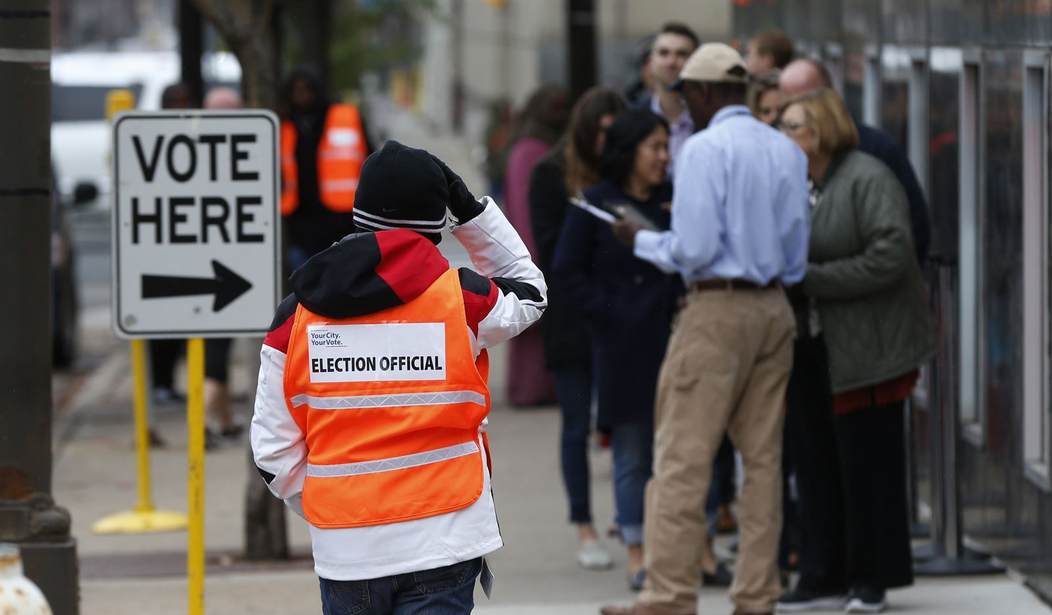I'm sorry, but you have no constitutional "right" to vote by mail. You have no constitutional "right" to vote six days after an election is over. Nor do you have any "right" to censor information related to an election. Not even during a pandemic.
This week, the Supreme Court ruled that a federal court was not empowered to overwrite Wisconsin's election laws and force the state to accept ballots without any postmark deadline nearly a week after the election. Likewise, the Wisconsin Supreme Court ruled that Governor Tony Evers did not have the authority to arbitrarily suspend in-person voting.
If these dictates had been allowed to stand, they would have created insanely destructive precedents, taking elections out of the hands of local legislatures. If we discard legal norms every time there's a crisis, we no longer have a nation of laws but a country at the mercy of arbitrary decrees, emotional appeals and pliable courts.
Not that any of this concerned the usual suspects, who began lamenting the alleged anti-democratic nature of Roberts' Court. When will the conservative wing abandon their partisanship and begin "compromising" wondered a news piece in The Washington Post.
Liberal pundits, apparently unable to differentiate between partisan policy preferences and the rule of law, launched into their customary hysterics, denouncing the Supreme Court for disenfranchised minorities and putting people's lives at risk. But the Court doesn't exist to fix your local government's incompetence or make life safer. It exists to uphold the Constitution.
Recommended
None of this is to say that the situation in Wisconsin is fair to voters, who had to risk standing in lines during a dangerous pandemic. Many states have contingencies in place for emergencies. Wisconsin -- while it had plenty of time to pass new guidelines -- does not. That's a Wisconsin problem, not a Supreme Court problem, not a "democracy" problem and definitely not a federal problem.
If Wisconsinites don't like their laws, if they're disappointed in legislators, if they're furious at the state's high court and bothered by the governor's ineptitude, then there will be plenty of future elections to right those wrongs. In no version of a healthy "democracy," however, do we override existing laws, passed by previous elected officials, through fiat.
But make no mistake, the Wisconsin case will be used in the broader effort to federalize and centralize elections to create a more direct democracy -- even though such effort are antithetical to American governance.
Senator Elizabeth Warren has already proposed mandating automatic and same-day voter registration, ending ID requirements, compelling states to have 15 days of early voting and forcing states to adopt voting by mail, among other liberal pet projects. She wants the federal government to bribe states with billions to adopt these standards. And she wants those changes implemented by November.
She's not alone. In "Phase 4" of the coronavirus rescue package, Democratic leaders are reportedly including provisions that would compel all states to offer voting by mail. Presidential hopeful Joe Biden also supports such a mandate, because, he claims, "all the experts" say we should do it.
Now, I don't know what experts Biden is referencing, but Publius, something of an authority on these matters, once wrote that it was a no-brainer to condemn the suggestion that federal government should regulate state elections as both "an unwarrantable transposition of power, and as a premeditated engine for the destruction of the State Governments."
As a practical matter, requiring states, all of which have varied systems, technologies and infrastructures, to figure out how to handle mail-in ballot systems in the midst of a pandemic is absurd. And not merely because of the obvious feasibility problems, but because there is no proper time to debate the issue. Democrats have spent years weakening the integrity of elections, but voting by mail opens up the process to real-world voter intimidation, disenfranchisement, fraud -- and a host of other problems.
Then again, people of goodwill can disagree over the particulars of election policy. It's far more critical to note that neither the Senate, nor the House, nor the White House, nor federal courts have any business compelling states to adopt uniform standards regarding mail-in ballots or IDs or voting machines, or much of anything else. A national mail vote is meant to federalize the election, leaving smaller states to vagaries of a national majority. It's exactly the kind of situation the Constitution wanted us to avoid.
David Harsanyi is a senior writer at National Review and the author of the book "First Freedom: A Ride Through America's Enduring History With the Gun." To read features by other Creators Syndicate writers and cartoonists, visit the Creators Syndicate webpage at www.creators.com.

























Join the conversation as a VIP Member